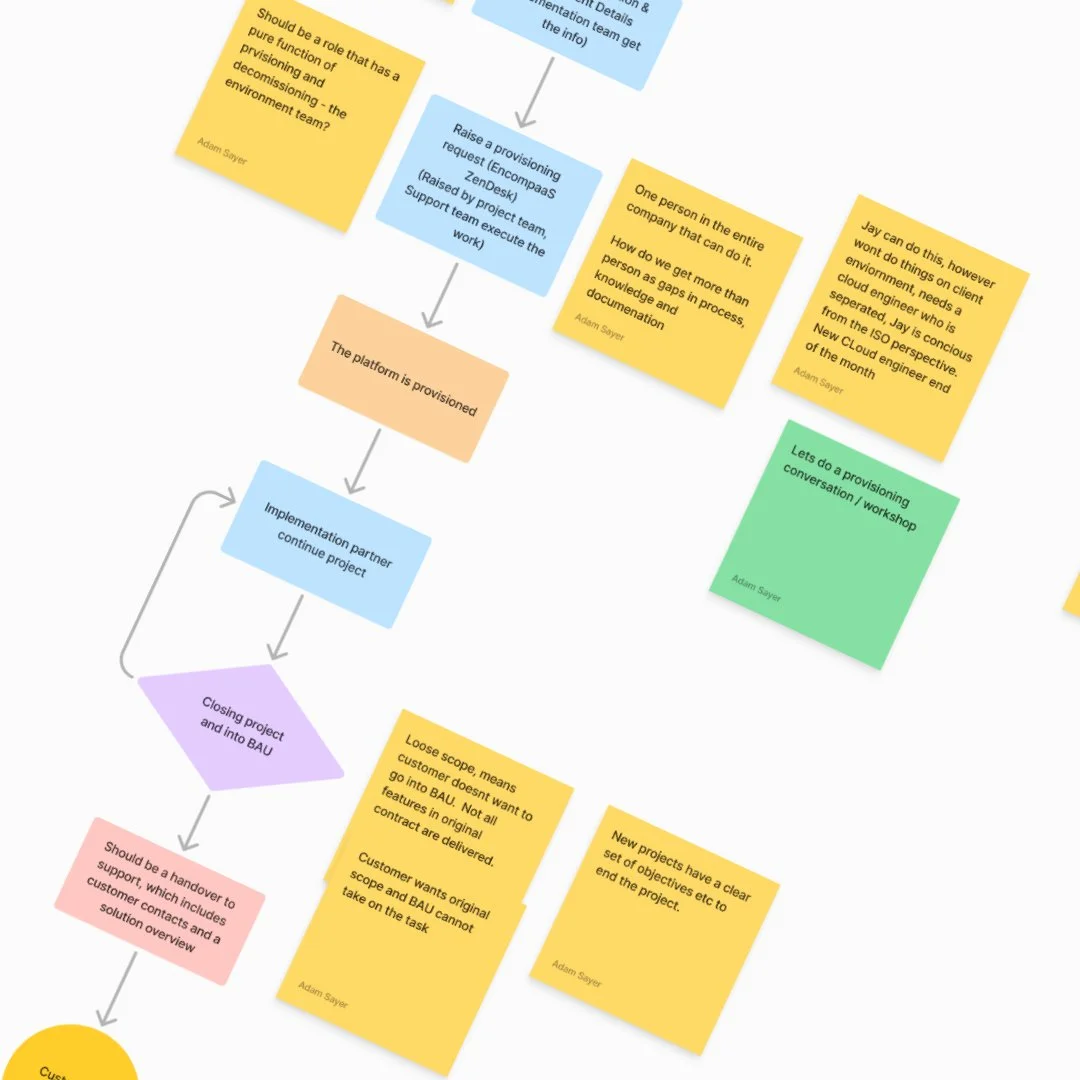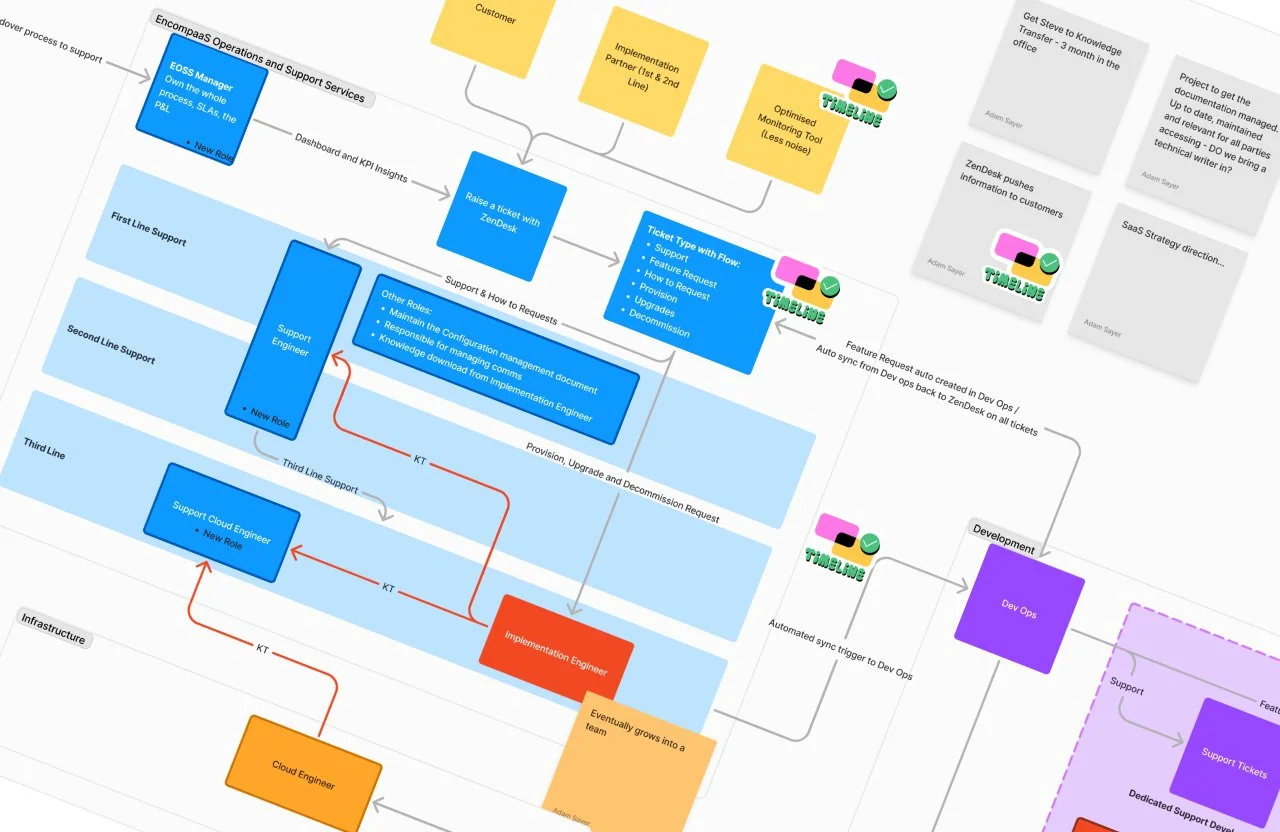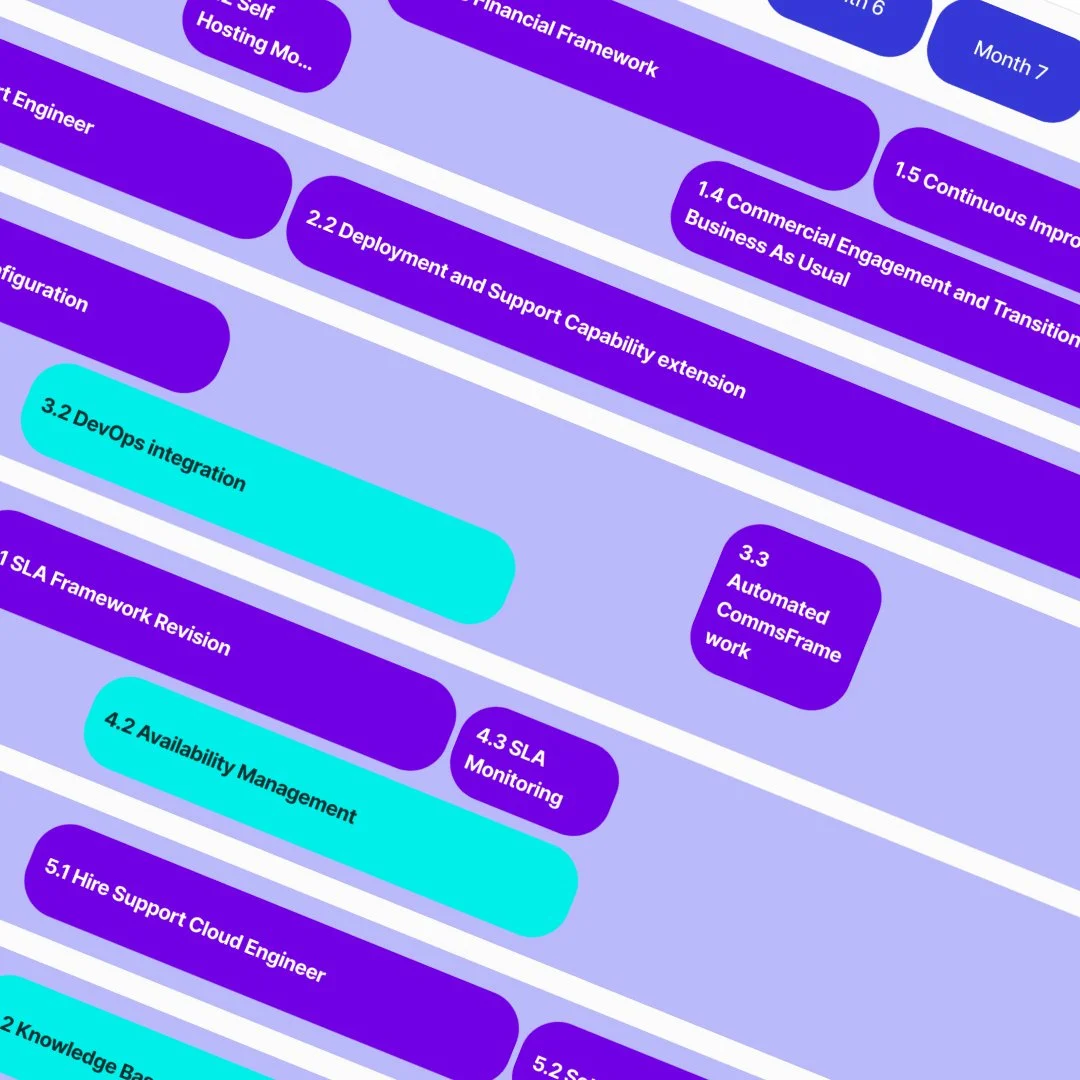Transforming Support Services into a Scalable, Customer-Centric Business Unit
Challenge
EncompaaS faced critical challenges in its support operations:
Single Points of Failure: Reliance on a single individual for key support functions led to risks in service continuity.
Lack of Scalability: Absence of formal processes, limited SLA tracking, and inadequate automation restricted growth and operational efficiency.
Technology Gaps: Manual synchronisation between Zendesk and Azure DevOps, and insufficient monitoring and reporting tools hindered performance visibility.
Customer Expectations: Global customers experienced delayed responses due to limited timezone coverage, and inconsistent service quality affected satisfaction.
Resource Constraints: A lack of knowledge management, formal training programs, and structured governance limited the organisation’s ability to onboard and empower teams.
Approach
To address these challenges, the program implemented a phased, customer-centric strategy:
Support as a Business Unit (ESS):
Established EncompaaS Support Services (ESS) as a dedicated profit centre to centralise and optimise customer-facing activities.
Developed a clear P&L structure and service catalogue to formalise operations .
Knowledge Management:
Implemented a robust framework for knowledge transfer, addressing single points of failure and improving team scalability .
Technology Integration:
Enhanced Zendesk capabilities, automated workflows, and synchronised DevOps for seamless ticket management and SLA tracking .
Service Level Management:
Redesigned SLA frameworks with realistic recovery objectives and tracking mechanisms to meet contractual commitments .
Phased Roadmap:
Delivered an MVP to establish essential support capabilities within the first year, followed by progressive enhancements over the next three years .
Outcomes
Operational Excellence:
Reduced single points of failure through strategic hiring (ESS Manager, Support Engineers) and robust knowledge sharing.
Standardised workflows streamlined ticket handling, escalation processes, and SLA management .
Scalability:
Implemented automation in routine support tasks, allowing the team to handle increasing volumes without proportional resource expansion .
Customer Value:
Improved service levels, faster issue resolution, and consistent communication led to higher customer satisfaction scores .
Profitability:
New revenue streams were introduced through premium support packages and self-hosting tariffs, making support a value-added service .
Key Deliverables
Roadmap and MVP Implementation:
Delivered a phased plan prioritising risk mitigation and operational efficiency .
Governance Framework:
Established roles, responsibilities, and KPIs for support teams, ensuring accountability and continuous improvement .
Knowledge Base:
Built a centralised, AI-enhanced repository for documentation and customer self-service .
Enhanced Technology Platform:
Integrated DevOps with Zendesk for real-time SLA tracking and automated escalation .
Identified Benefits
Operational Resilience
Distributed knowledge and automated systems minimised service disruptions.
Customer Satisfaction
Clear SLAs and proactive communication improved trust and retention.
Revenue Growth
Support transitioned from a cost centre to a profitable business unit with clear financial accountability
Scalability
The foundation for global support expansion and advanced service offerings, such as “follow-the-sun” support and premium SLAs




